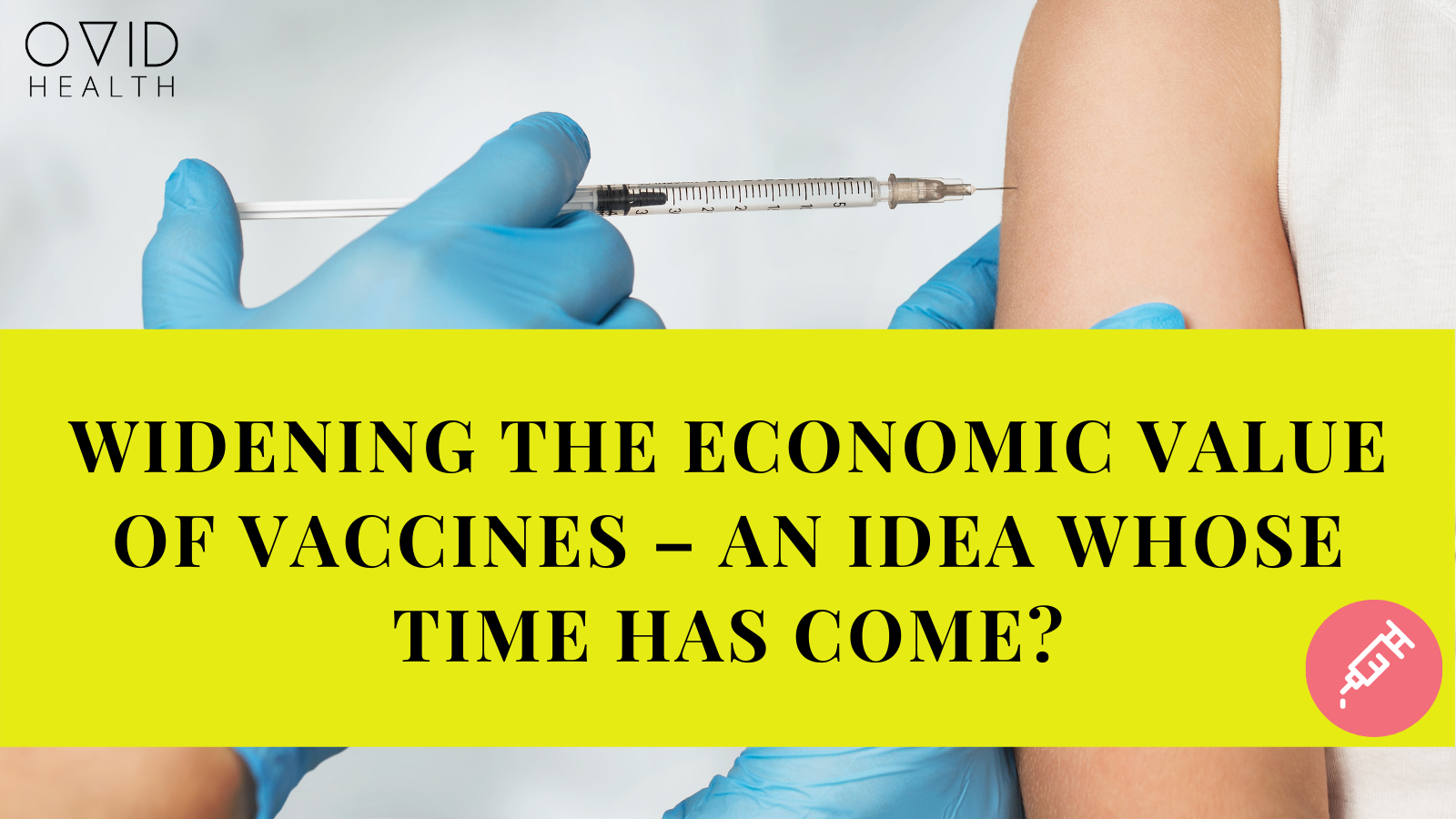
11 Feb Widening the Economic Value of Vaccines – an idea whose time has come?
At our recent event, ‘Change for good or just for now: will COVID transform UK health?’, OVID Senior Counsel, Professor David Salisbury, said the most fundamental changes in vaccine policy resulting from the pandemic would have to be the macroeconomic impact of the pandemic and the value that is placed on vaccines. But we’ve been here before, with industry groups and economists often demonstrating wider societal value. So is now the time for change?
Since early on in the pandemic, it was clear that vaccines were the only long-term solution to protect health and to reopen the economy. Never before have health and economy been so closely intertwined, with one unable to manage without the other. Around the world, the mainstream recognition of the fundamental role of vaccines heightened dramatically.
But what does this new recognition mean for the way in which vaccines are assessed by our healthcare institutions?
Throughout COVID-19, conventional cost-effectiveness analysis has been cast aside. Effectiveness or efficacy were the criteria. Put another way, the only question was ‘will this vaccine help us get back to normal?’
These new value considerations are not likely to be ignored after the COVID-19 pandemic. Analysis from the Office for Health Economics states that 23 preventative and seven therapeutic vaccines that are currently in phase III trials could be launched in the UK in the next 5 years. The ground has been laid for politicians and advocates to accept in part wider economic benefits of vaccines when they come to market.
Industry has called for the wider societal benefits of vaccines and medicines to be taken into account in decisions about access for some time. Whether it is a therapy which allows people to return to work, or a device which enables patients to return to active lives after debilitating disease, there are non-health benefits to almost all types of healthcare.
But in the current vaccines narrative and positive attitudes lies the power to mainstream the wider value debate and generate a real counter argument in the risk to harming both economy and health.
With the inevitable inquiry after the pandemic, a new regulatory system post-Brexit, and a reshaping of the way NICE assesses health technologies, now could be the moment for the true value of vaccines to be realised by the NHS.
But a good idea is often lost in application. In practice the application of non-health benefits to the value assessment of vaccines is not quite so simple. Questions remain such as how to weight the different values. In other words, what is more important to assess – the health aspects or the economic aspects? And how do you ensure one does not detract from the other?
Secondly, in the UK at least, payers operate in a siloed environment. The challenges of COVID-19 have shifted this position slightly, but there is a long way to go and there are not many clues in the NHS Bill published today.
To find out more about these policy developments and analysis, get in touch with OVID Health at [email protected].